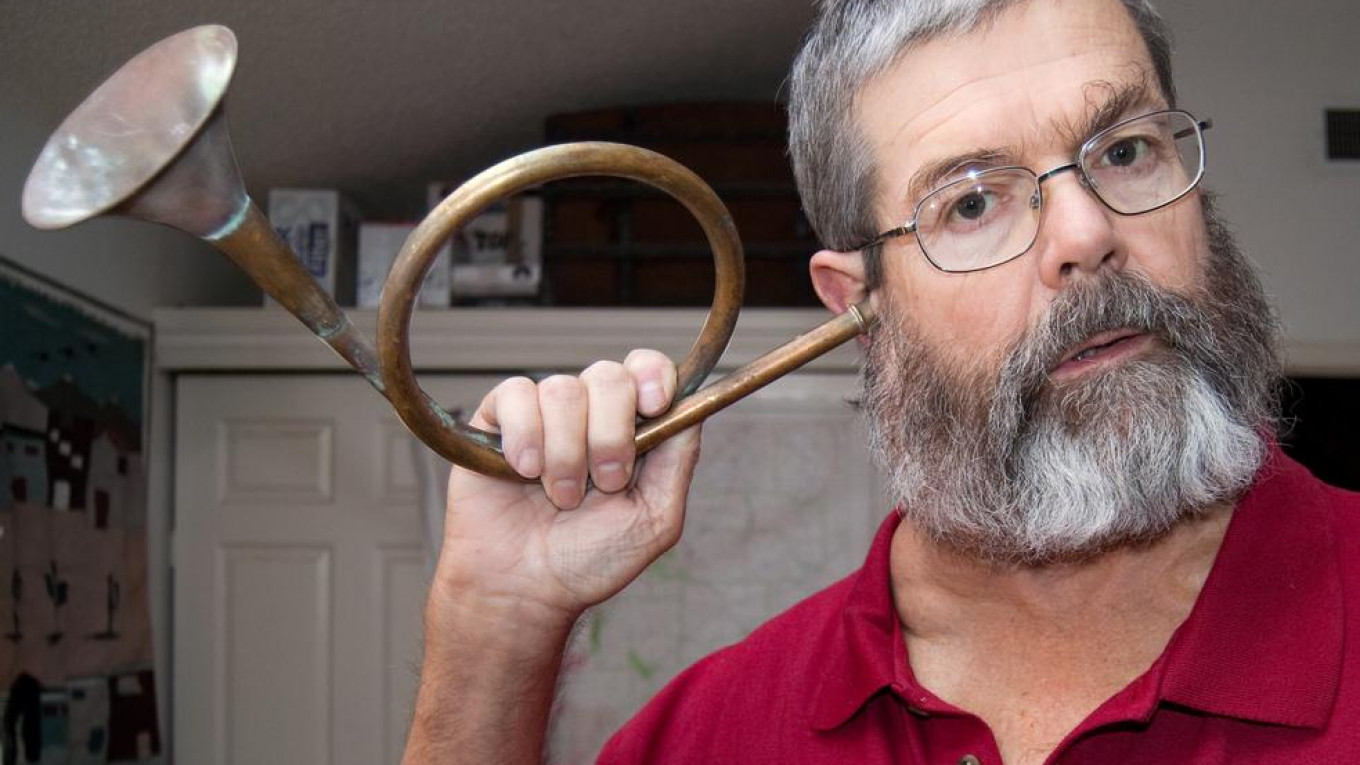Ухо: ear
When I grow up — or retire, whichever comes first — I want to get a Ph.D. in linguistics by writing a dissertation on The Role of Body Parts in Russian Expressions. There is nothing more fascinating or funnier than noses, eyes, cheeks and chins showing up in every day expressions. This week I’m all ears.
Some Russian ear expressions are easy to remember because there are almost exact English equivalents. This makes for общий язык (common language) when mothers of the world unite to talk about their kids. Мамы (moms) complain that their valuable advice is not assimilated and retained by their teenage children: Я ему говорю, что образование — всё, но это входит в одно ухо и из другого выходит (I keep telling him that education is everything, but it goes in one ear and out the other.) And when said teenager commits to a university degree, moms and мамы shout in joy: Я не верю своим ушам! (I can’t believe my ears!)
Meanwhile, the teenager tells his buddies: Когда моя мать рассказывает мне про образование, я пропускаю мимо ушей (When my mother tells me about education, I just let it go by, literally “go past my ears.”) Sometimes, however, teens pay attention to moms: Я во все уши слушал, как она напилась в школе — чтобы потом напоминать! (I was all ears when she told me about getting drunk in school — so I can remind her about that later.)
Russian ears do amazing tricks. They droop to show disgust: Он такие глупости несёт, что уши вянут (It makes me sick to listen to the crap he says.) Or they stand up straight to show wariness or concern: Он скользкий тип. Держите с ним ухо востро (He’s a slippery customer. Watch out with him, literally “keep your years pricked.”) They can even flap in the wind, either to indicate incomprehension or a failure to do something important: Пока мы будем хлопать ушами и смотреть, сколько стоит нефть, ничего не изменится (As long as we sit on our hands doing nothing — literally “wag our ears”— and just watch the price of oil, nothing will change.) You can even stand on them, which means that you are going all out to do something: Вся редакция стояла на ушах, чтобы сдать номер в печать во время (The whole editorial team bent over backwards — literally “stood on their ears” — to get the edition ready for press on time.)
Ears can also serve as visual aids. For example, since you can’t see your own ears, не видать как своих ушей means that you’ll never get something. На этой зарплате новую машину не видать как своих ушей (On that salary you can forget about buying a new car.) Sometimes the visuals are metaphorical. Резать ухо (to cut the ear) means “it sounds bad,” like an accent or voice. Название нового автомобиля режет ухо (The name of the new car sounds awful.) Sometimes ear talk is very metaphorical: Он был в долгах по самые уши (He was up to his ears in debt).
But you can be up to your ears in something good, too: Он в неё влюбился по самые уши (He was head over heels in love with her.)
To which the moms say: В любви он не смыслит ни уха, ни рыла. (He doesn’t know a thing — literally “not an ear nor a snout” — about love.)
Michele
A Berdy is a Moscow-based translator and interpreter, author of “The Russian
Word’s Worth,” a collection of her columns. Follow her on Twitter
@MicheleBerdy.
A Message from The Moscow Times:
Dear readers,
We are facing unprecedented challenges. Russia's Prosecutor General's Office has designated The Moscow Times as an "undesirable" organization, criminalizing our work and putting our staff at risk of prosecution. This follows our earlier unjust labeling as a "foreign agent."
These actions are direct attempts to silence independent journalism in Russia. The authorities claim our work "discredits the decisions of the Russian leadership." We see things differently: we strive to provide accurate, unbiased reporting on Russia.
We, the journalists of The Moscow Times, refuse to be silenced. But to continue our work, we need your help.
Your support, no matter how small, makes a world of difference. If you can, please support us monthly starting from just $2. It's quick to set up, and every contribution makes a significant impact.
By supporting The Moscow Times, you're defending open, independent journalism in the face of repression. Thank you for standing with us.
Remind me later.








